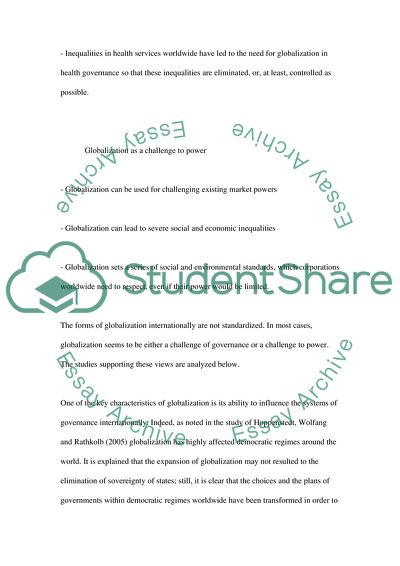Cite this document
(Globalization as a Challenge to Governance Literature review Example | Topics and Well Written Essays - 1500 words - 1, n.d.)
Globalization as a Challenge to Governance Literature review Example | Topics and Well Written Essays - 1500 words - 1. https://studentshare.org/politics/1770804-the-politics-of-globalization
Globalization as a Challenge to Governance Literature review Example | Topics and Well Written Essays - 1500 words - 1. https://studentshare.org/politics/1770804-the-politics-of-globalization
(Globalization As a Challenge to Governance Literature Review Example | Topics and Well Written Essays - 1500 Words - 1)
Globalization As a Challenge to Governance Literature Review Example | Topics and Well Written Essays - 1500 Words - 1. https://studentshare.org/politics/1770804-the-politics-of-globalization.
Globalization As a Challenge to Governance Literature Review Example | Topics and Well Written Essays - 1500 Words - 1. https://studentshare.org/politics/1770804-the-politics-of-globalization.
“Globalization As a Challenge to Governance Literature Review Example | Topics and Well Written Essays - 1500 Words - 1”. https://studentshare.org/politics/1770804-the-politics-of-globalization.


